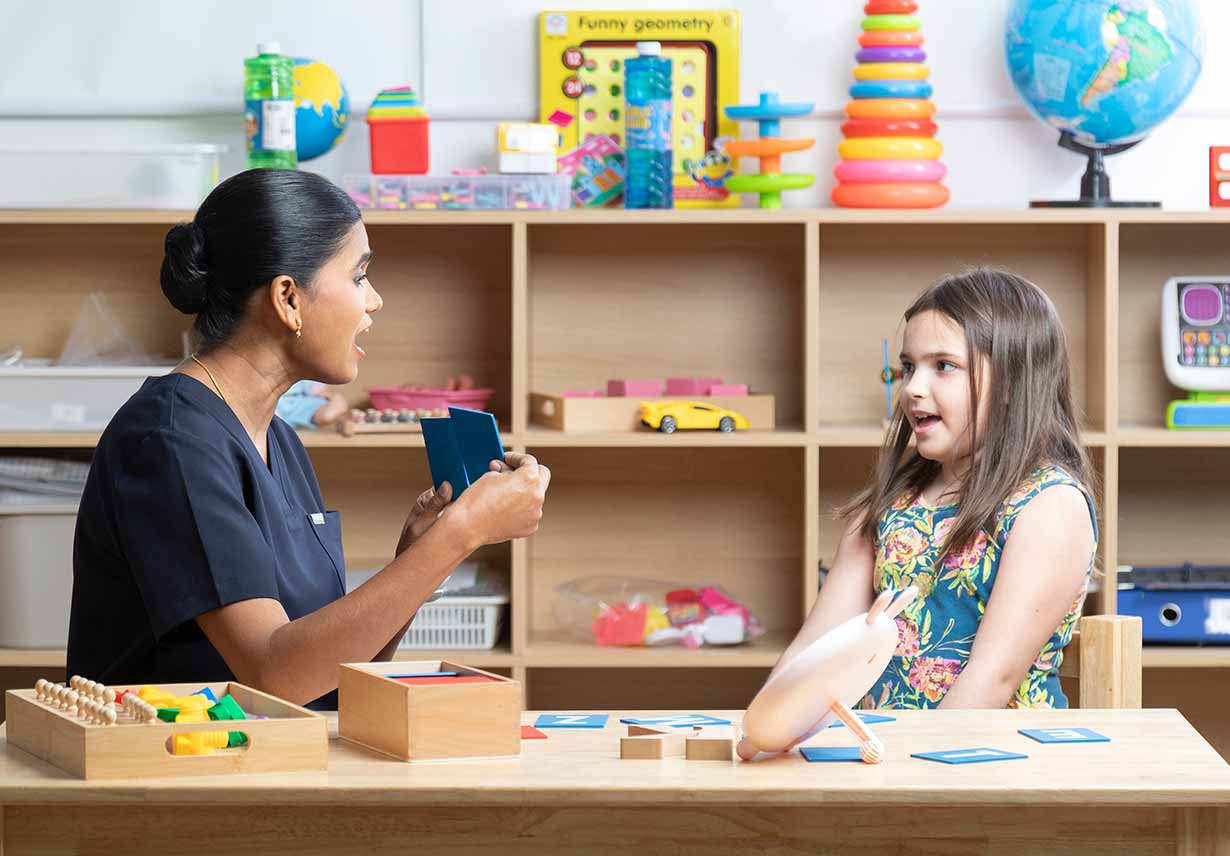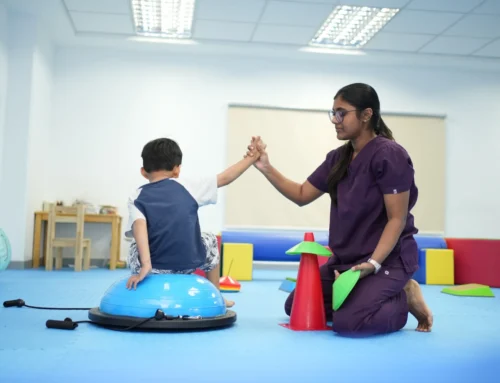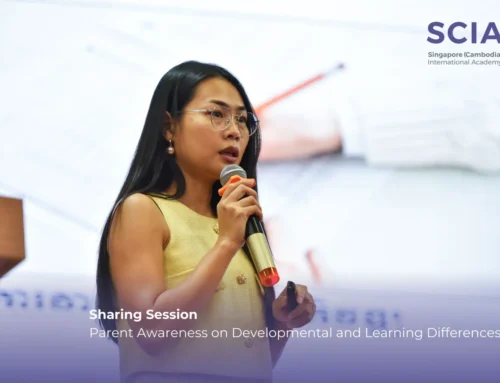In Cambodia, more parents and educators are recognizing that communication is not just about talking — it’s about connection. For many children, especially those in Phnom Penh and surrounding areas, developing strong communication skills is directly tied to how they express emotions, build friendships, and develop self-confidence. That’s where speech therapy plays a powerful role.
Speech therapy doesn’t only improve how children speak — it helps them understand and manage emotions, build resilience, and interact meaningfully with others. In this article, we’ll explore how speech therapy supports social-emotional learning (SEL) and confidence, and why it’s an essential part of holistic child development in Cambodia.
Understanding the Connection Between Speech Therapy and Social-Emotional Learning
Social-emotional learning (SEL) focuses on developing five key areas: self-awareness, self-management, social awareness, relationship skills, and responsible decision-making. These skills help children navigate their world with empathy, confidence, and resilience.
However, children who experience communication challenges — such as speech delays, articulation issues, or language disorders — often struggle with expressing feelings, understanding others, or forming relationships. This is where speech-language pathologists (SLPs) can make a remarkable difference.
Through structured activities, games, and guided conversations, speech therapy sessions help children practice emotional vocabulary, perspective-taking, and problem-solving — all while improving their speech and language skills.
At OrbRom Center in Phnom Penh, therapists integrate social-emotional goals into language-based interventions, ensuring that communication development also enhances emotional growth.
Building Self-Awareness Through Speech Therapy
One of the most profound ways speech therapy supports SEL is by helping children develop self-awareness — understanding their own thoughts, feelings, and communication patterns.
When a child learns to say new sounds, form sentences, or express their needs clearly, they gain a deeper sense of accomplishment. Therapists often encourage children to reflect on their progress using visual supports or social stories. For example, a student might look in a mirror while practicing speech sounds or identify emotions on flashcards to discuss how they feel in different situations.
This process helps children connect words to feelings, fostering emotional intelligence. Over time, they become more confident in expressing themselves both at home and in school.
To learn more about how therapists at OrbRom Center guide children through early language milestones, see What Is Speech Therapy?.
Enhancing Social Skills and Empathy
Communication is at the heart of every relationship. Children with limited speech or language abilities may find it difficult to join group play, share ideas, or resolve conflicts — which can lead to frustration or isolation.
Speech therapy offers structured opportunities for children to practice social interaction in a safe and supportive environment. Using role-play, storytelling, and play-based activities, therapists teach essential skills such as turn-taking, eye contact, listening, and understanding social cues.
For instance, a child may learn how to start a conversation or how to recognize when someone else is feeling sad or happy. These experiences strengthen empathy — the ability to understand and respond to others’ emotions.
At OrbRom Center’s Preschool Program, social-emotional learning is woven into speech and language sessions, helping children develop friendships and confidence that extend beyond the therapy room.
Reducing Anxiety and Building Confidence
Many children who struggle with speech feel self-conscious or anxious when speaking in front of others. Repeated communication difficulties can impact self-esteem and even lead to withdrawal in classroom or social settings.
Speech therapy creates a safe space where children can practice communication without fear of judgment. Therapists use positive reinforcement, playful challenges, and achievable goals to build success step-by-step.
For example, a therapist might begin with one-on-one play sessions, then gradually introduce peer interaction once the child feels more comfortable. Over time, children who once hesitated to speak start to initiate conversations and express their ideas with confidence.
A great resource on this topic is Building Confidence Through Speech Therapy, which explores practical ways therapists help children feel empowered through communication.
Supporting Emotional Regulation Through Communication
Emotional regulation — the ability to control one’s emotional responses — often depends on communication skills. When children can label emotions (“I’m angry,” “I feel nervous”) or explain what’s wrong, they’re better able to manage stress or frustration.
Speech therapy sessions often include activities that connect words with feelings, such as identifying emotions in pictures, acting out stories, or using visual emotion charts. These strategies help children learn that emotions are natural and manageable.
In Cambodia’s classrooms, teachers who collaborate with speech therapists report that students become calmer and more cooperative once they can express themselves better. This reinforces the importance of integrating SEL into therapy goals.
To see how language supports emotional growth, read Teaching Emotions Through Speech Therapy.
Integrating Speech Therapy Into School Environments
In Phnom Penh’s growing network of international and inclusive schools, speech therapists work alongside teachers to promote both academic and emotional success. Children who receive therapy within their school environment benefit from consistent communication strategies, peer modeling, and collaboration between educators and therapists.
Therapists may join classroom activities, help teachers adapt lessons for diverse learners, or coach students during group discussions. This inclusive approach allows children to practice communication skills in real-world situations — fostering confidence, resilience, and a sense of belonging.
For schools seeking to strengthen inclusive education, OrbRom Center’s Special Needs Intensive Intervention offers individualized programs that combine speech therapy, occupational therapy, and behavioral support.
Empowering Families and Teachers in Cambodia
Speech therapy’s success doesn’t stop in the therapy room — it thrives when families and teachers continue supporting communication at home and school.
Therapists often guide parents on using simple strategies like narrating daily routines, modeling clear speech, or acknowledging emotions verbally (“You look excited!” or “You seem frustrated”). These small interactions reinforce language and emotional understanding every day.
Workshops and professional training across Phnom Penh are helping educators recognize early signs of communication delays and apply SEL-focused techniques in their classrooms. When parents, teachers, and therapists work together, children experience stronger emotional connections and a more inclusive learning environment.
Learn more about comprehensive developmental assessments that guide individualized therapy plans at OrbRom Assessments.
Why This Matters
In Cambodia, awareness around special needs and child development has grown rapidly, but many families are still learning how deeply communication affects emotional wellbeing. Schools that include speech therapy as part of their support services are helping children not only speak more clearly but also connect, empathize, and thrive socially.
By investing in early intervention and professional support, parents and educators in Phnom Penh can nurture confident communicators who express themselves with empathy and joy.
For families seeking expert help, OrbRom Center’s Speech Therapy in Phnom Penh provides evidence-based programs that strengthen both communication and confidence in every child.
Conclusion
Speech therapy is far more than articulation practice — it’s a bridge to social-emotional learning and lasting self-confidence. By helping children find their voice, speech therapists also help them manage emotions, build empathy, and form meaningful connections with others.
In Cambodia’s evolving education landscape, integrating speech therapy within schools and communities is key to fostering inclusive, confident, and emotionally intelligent learners.
Whether your child is struggling with speech, social skills, or emotional regulation, early support from qualified therapists can make a lifelong difference. Explore how OrbRom Center’s Speech Therapy Services empower children to grow — one word, one feeling, and one connection at a time.
We are the only Preschool specialized on children with special needs in PhnomPenh.
- Internationally qualified teachers
- Cambodia’s largest sensory room
- Outdoor swimming pool
- Covered outdoor playground
📞 Phone: 077.455.993
Telegram Link: https://t.me/OrbRom





